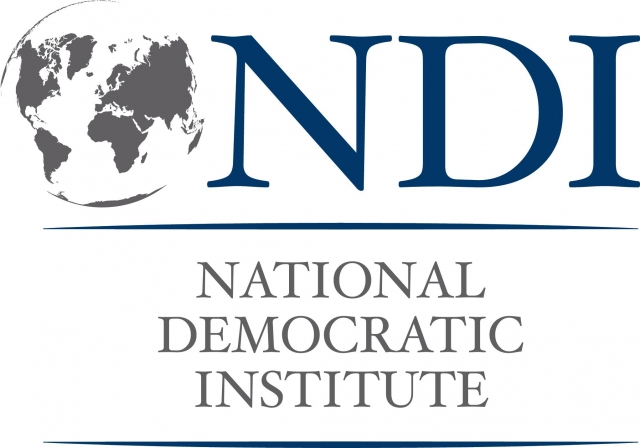Who We Are
The National Democratic Institute for International Affairs (NDI) is a nonprofit, nonpartisan organization, based in Washington D.C., that works in partnership around the world to strengthen and safeguard democratic institutions, processes, norms and values to secure a better quality of life for all. NDI believes all people have the right to live in a world that respects their dignity, security, and political rights—and that the digital world is no exception.
Within NDI, the Democracy and Technology team seeks to foster a global digital ecosystem in which democratic values are protected, promoted, and can thrive; governments are more transparent and inclusive; and all citizens are empowered to hold their government accountable. We do this work by supporting a global network of activists committed to digital resilience, and through collaboration with partners on tools and resources like this Handbook. You can learn more about our work on our website, by following us on Twitter, or by reaching out directly to [email protected]. We are always happy to hear from you and answer questions about our team and our work on cybersecurity, technology, and democracy.

Authors & Acknowledgments
Lead Author: Evan Summers (NDI)
Contributing Authors: Sarah Moulton (NDI); Chris Doten (NDI)
In developing this Handbook, we’d like to particularly thank our expert external reviewers who provided us with valuable feedback, edits, and suggestions as we pulled together this content, including: Fiona Krakenburger, Open Technology Fund; Bill Budington and Shirin Mori, Electronic Frontier Foundation; Jocelyn Woolbright, Cloudflare; Martin Shelton, Freedom of the Press Foundation; Dave Leichtman, Microsoft; Stephen Boyce, International Foundation for Electoral Systems; Amy Studdart, International Republican Institute; Emma Hollingsworth, Global Cyber Alliance; Caroline Sinders, Convocation Design + Research; Dhyta Caturani; Sandra Pepera, NDI; Aaron Azelton, NDI; and Whitney Pfeifer, NDI.
We also want to acknowledge all the incredible manuals, guides, workbooks, training modules and other materials developed and maintained by the Organizational Security (OrgSec) Community. This Handbook is designed to complement those more in-depth materials, combining key lessons into a one-stop, easy-to-read resource for civil society organizations looking to get started on a cybersecurity plan.
In addition to taking indirect inspiration from many wonderful resources compiled by the community, we have directly copied useful language from a handful of existing resources as well throughout this Handbook, particularly the Electronic Frontier Foundation’s Surveillance Self Defense Guide, Tactical Tech’s Holistic Security Manual, and a range of explainers from the Center for Democracy and Technology and the Freedom of the Press Foundation. You can find specific citations to these resources throughout the sections below, and complete links, author, and license information within Appendix A.
We also strongly recommend that anyone reading this Handbook make use of the extensive library of digital security guides and resources compiled and updated by the Open Technology Fund.